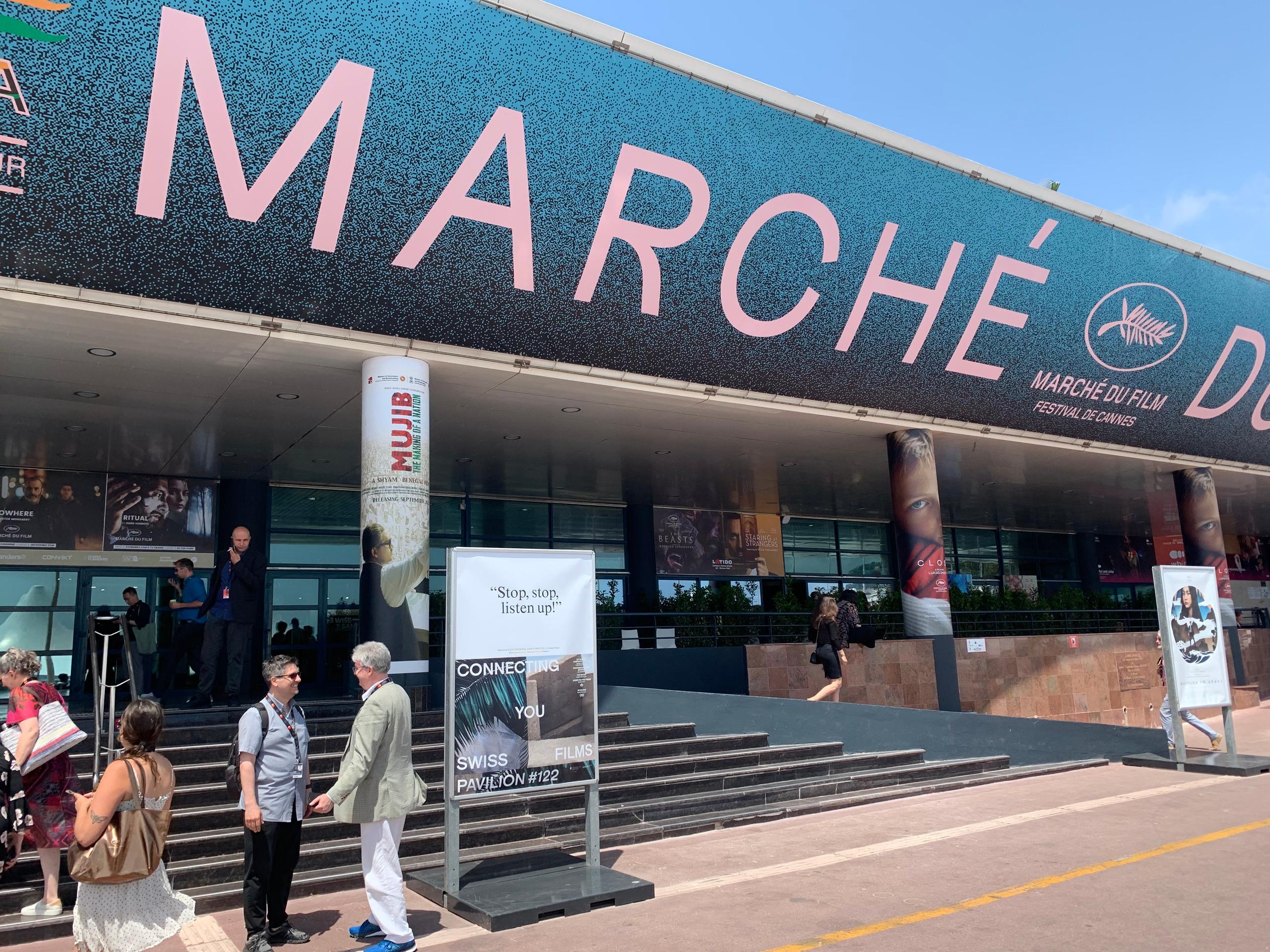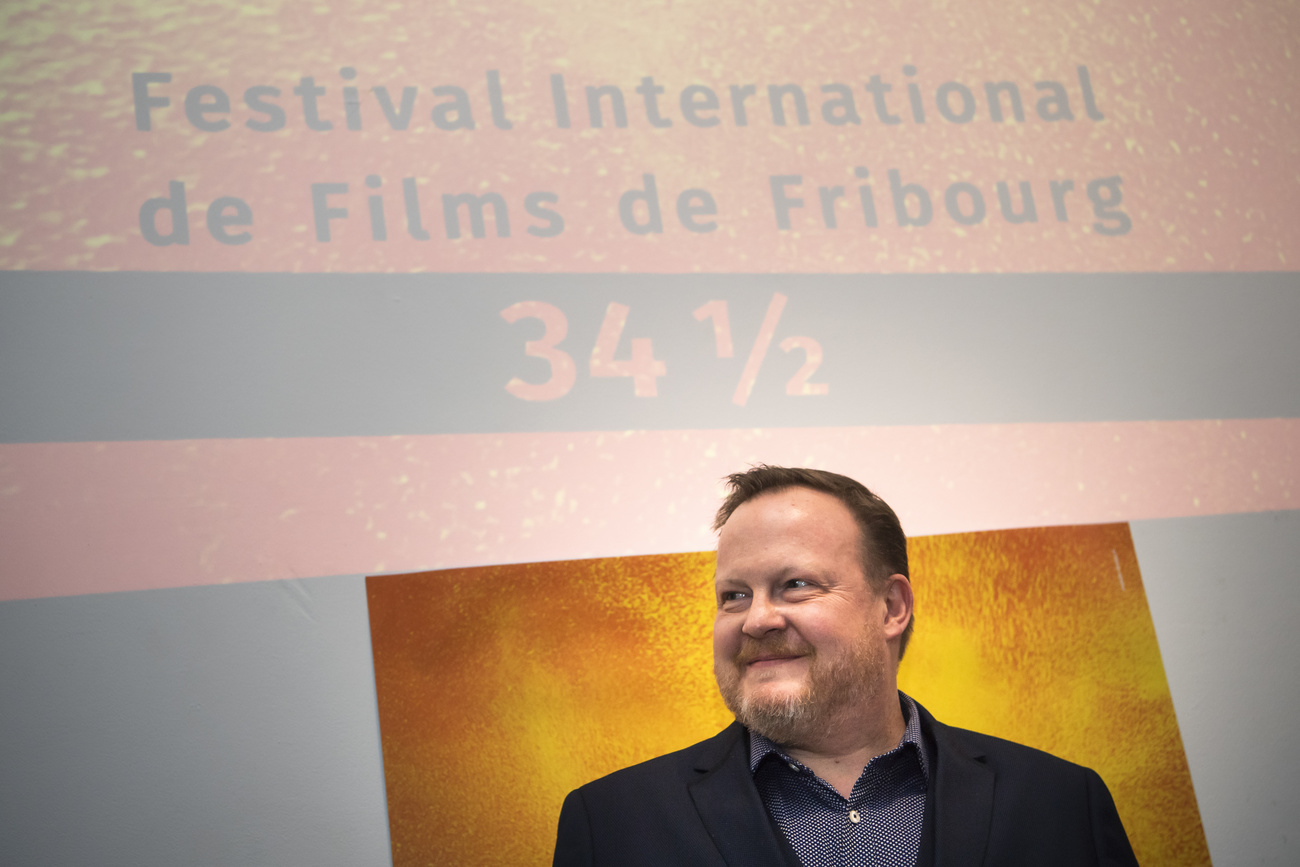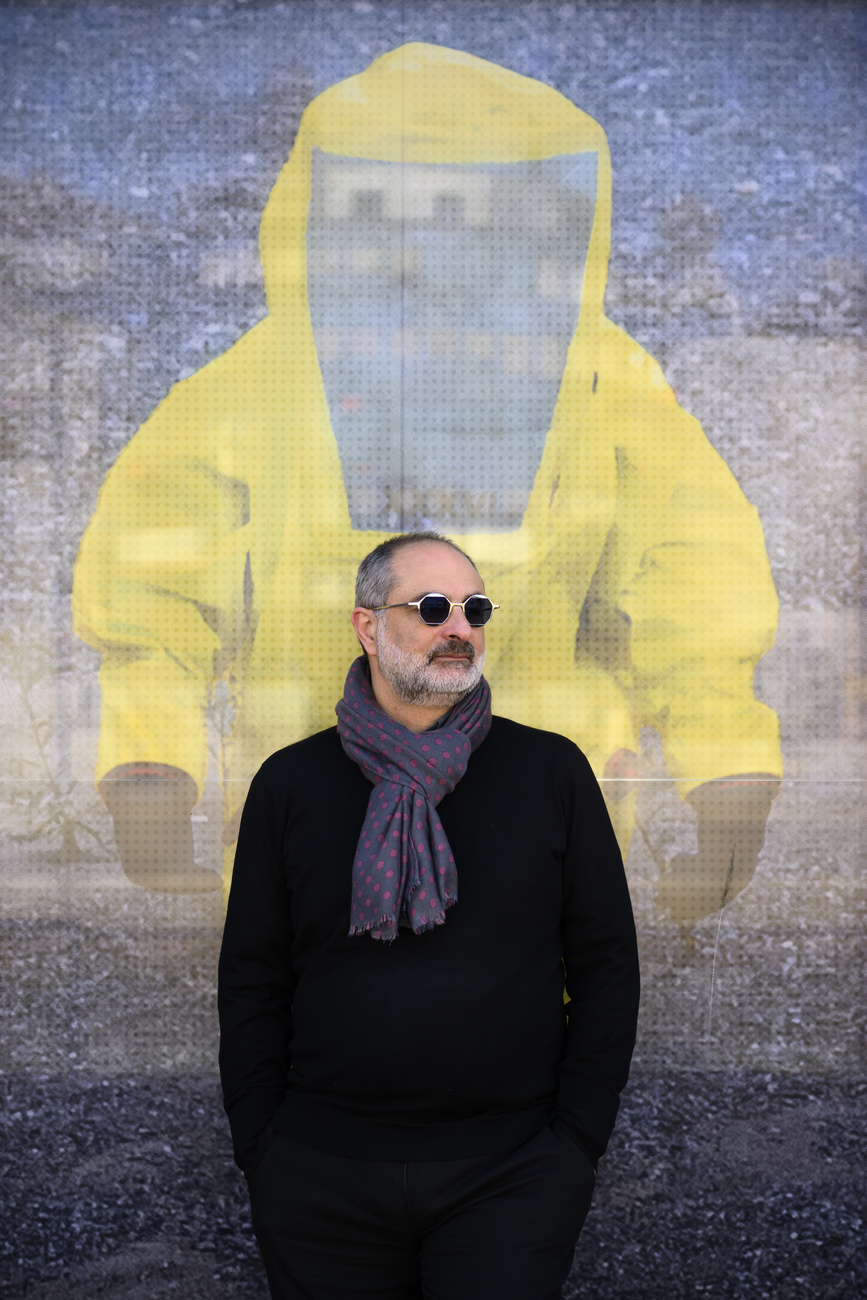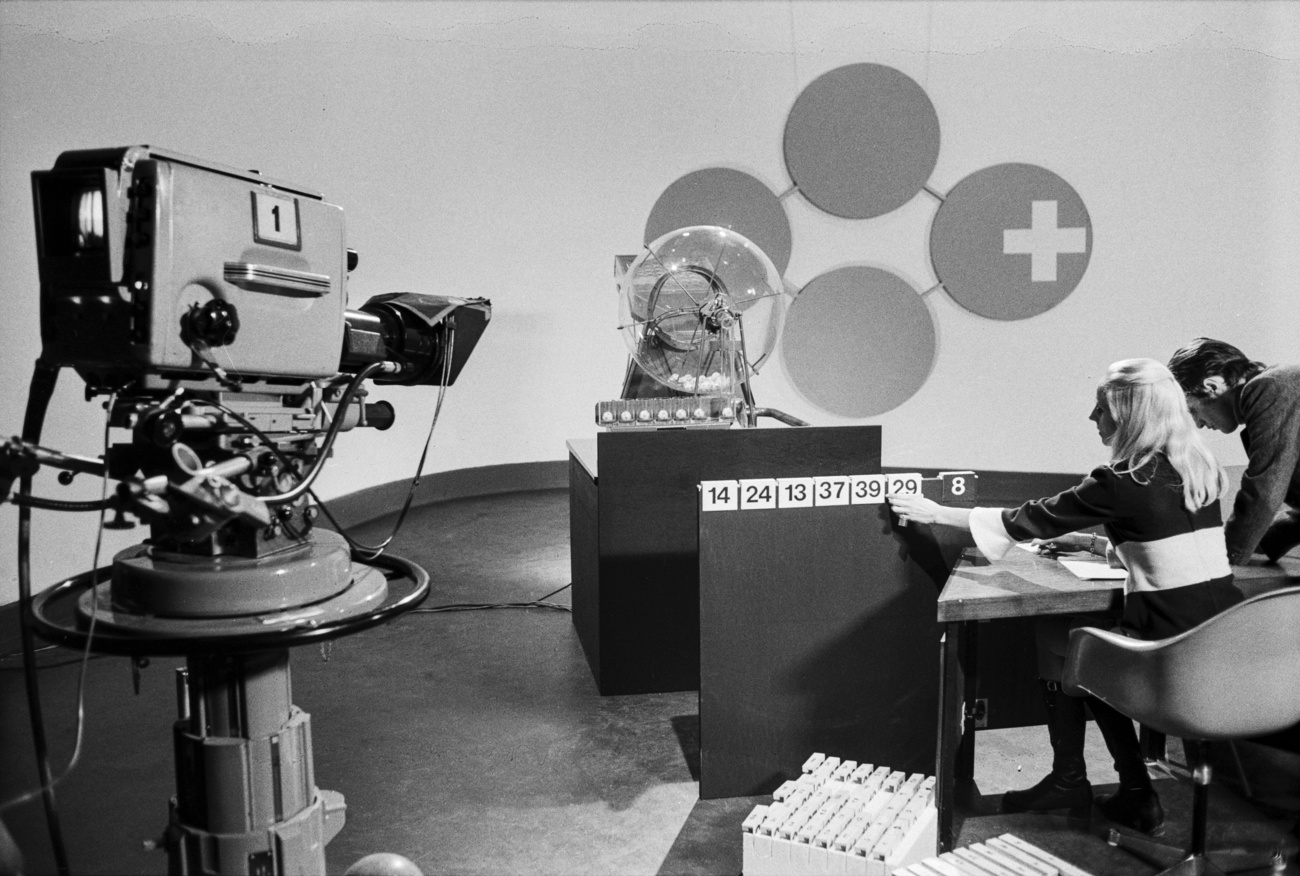In Cannes, the real festival happens away from the red carpet

Cannes is so much more than just glamour: while stars compete for the spotlight, the film industry conducts serious business under the radar. SWI swissinfo.ch visited the Marché du Film (Cannes Film Market) and talked to some of the industry players who attend the meetings behind closed doors.
Cannes Film Festival is usually associated with the red carpet, big premieres and major film stars attending the annual event on France’s Côte d’Azur. This year, these included Tom Cruise (for Top Gun: Maverick), Léa Seydoux (for Crimes of the Future), and American actor Forest Whitaker (who received an honorary Palme d’Or on the opening night).
But there is, in fact, another festival taking place at the same time. The Marché du Film, arguably the largest commercial event of the film industry, brings together buyers, sellers, distributors as well as other festival directors.
This year the event was back in full swing after a scaled-down edition in 2021 and a fully digital one in 2020. With 12,500 accredited visitors from 121 countries – compared with the ‘public’ part of the main film festival that attracts around 4,000 journalists – that is where the real movers and shakers of the film industry gather.
It is an invisible festival, hidden in plain sight. The main locations are the underground level of the Palais des Festivals (Cannes Conventions Center), the adjacent Lérins building, and the Village International, comprised of national pavilions and booths spread across the Riviera. Some studios and agencies also do their business in hotel suites, discreet villas and yachts, while exclusive screenings occur in several cinemas across the French city.

The film market is especially helpful for smaller events like the Fribourg International Film Festival (FIFF), which don’t focus on world premieres. “That makes sales agents more relaxed, and they also love it when we ask to take a look at older films for our themed sections,” says Thierry Jobin, who used to attend Cannes as a journalist before becoming a Marché regular as the artistic director of the Fribourg festival.
It is impossible to pin down the volume and value of deals negotiated during the festival; secrecy prevails in the film industry. In a recent interview with French television, the outgoing director of the Marché, Jérôme Paillard, who has headed the market for the past 27 years, estimates that on average between $600 million and $1billion (CHF580-960 million) exchange hands during the ten days of the festival.
This year’s figures will be hit by lower-than-usual attendance (-25%), notably from Russia and China. Furthermore, the volume of business hasn’t yet recovered to pre-pandemic levels. This is in line with the drop in cinema attendance (-25%) registered in France and other countries since 2020.
One example of the recent challenges facing the cinema industry is Crimes of the Future, David Cronenberg’s latest film, which, despite critical acclaim at Cannes, is having a hard time to strike distribution contracts in Europe. A Swiss distributor confessed to SWI that he was unwilling to pay the $1.2 million price tag asked by the producers (usually the rights for Switzerland are sold in a package also comprising Germany and Austria). “The movie will not do well enough in cinemas to justify that sum,” he admits.
Talking films, watching later
The Cannes film market has a completely different vibe from the festival itself, Jobin says. “It’s much more relaxed in terms of seeing films, because you don’t really have to book your seat or show up in advance,” he explains. Meanwhile, people trying to access the official part of the festival complained about the online ticketing system introduced during the pandemic, which tended to glitch and crash on a daily basis.

Of course, watching the films is, ironically, the last thing Jobin does when visiting Cannes: “My schedule consists of 90 meetings with different sales companies, so roughly nine per day. I meet with them for half an hour, lay out my plans for next year’s FIFF, and see what they might have to offer. I see maybe two films per day, not more.”
He admits that even then, he doesn’t hesitate to leave the cinema before the end of the film. “My philosophy is that if a film doesn’t grab my attention at all within the first 30 minutes, I stop watching,” he says.
That is a shared philosophy among market attendees and might come across as anathema to regular viewers and film critics, who make a point of staying until the end of a screening. Jobin adds: “It’s a very undisciplined ambiance at market screenings: people are allowed to have their phones out, and they come and go as they please, from one theatre to the next.”
He says the bulk of the viewing actually occurs after the festival; Jobin now has the task of watching 850 films in one month.
Streamers in the basement
Some insiders, like Alberto Barbera, director of the Venice International Film Festival, think the current market format will change in the future. While attending Locarno’s spring event L’immagine e la parola two months ago, he declared that “festivals will remain pretty much the same, because they’ve been operating the same way, successfully, for decades. Markets, on the other hand, will have to change. I’m not sure if renting stands and exhibition spaces is the best strategy, as the pandemic has shown that those interactions can occur just as efficiently in a more contained way.”

Giona A. Nazzaro, Locarno’s artistic director, agrees. “Cinema will not disappear, and neither will movie theatres,” he told SWI. “We have to imagine new conversations and strategies to take part in this possible new scenario. Markets can obviously play a key role, provided they can think of the future.”
Nazzaro’s vision of the future also include the role played by streaming giants in the film business. For them, the Marché in Cannes acquired an extra level of importance after the festival banned the participation of their productions in the main competition in 2018. The market has since become the privileged space for Netflix, Disney, Apple, HBO, Amazon and others to showcase their presence. During the first days of this year’s edition, there was talk about a $50-million deal done by Netflix for a conspiracy thriller to start filming in a few months.
But the streaming landscape is changing, according to Marché director Jérôme Paillard, who points to an increasing number of players in the market. “Netflix is no longer alone,” he declared to French television. “Competition among streaming platforms is much sharper. We have yet to see whether this new environment will pull prices upwards, and whether the rest of the market will be willing to follow,” he added.
The eye-contact factor
That said, everyone interviewed by SWI during the festival stressed the value of face-to-face deals. Sylvain Vaucher, who serves as the short films consultant for the promotional agency SWISS FILMS and regularly attends the animation market in Annecy, thinks going virtual has its positives and negatives. “It was nice to be able to do the work during the pandemic, that’s a given,” he admits. “But there’s something about human interactions that you can’t really replace with Zoom calls. Body language and unsaid things are just as important, and the computer screen doesn’t really convey that.”
The possibility of striking many deals in the same place and in a short time span is the main reason why the film business flocks to Cannes. But those few days are preceded by months of preparations to make sure diaries are filled in advance with back-to-back meetings. Nonetheless, seasoned visitors always leave empty slots in their agendas for unexpected opportunities. Serendipity is another vital advantage of the Marché, and in Cannes it is unbeatable.


In compliance with the JTI standards
More: SWI swissinfo.ch certified by the Journalism Trust Initiative













You can find an overview of ongoing debates with our journalists here . Please join us!
If you want to start a conversation about a topic raised in this article or want to report factual errors, email us at english@swissinfo.ch.